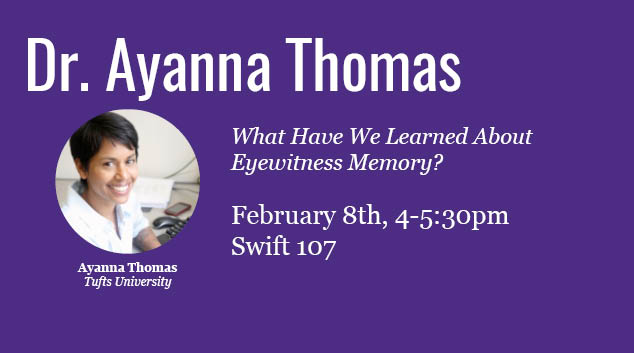Ayanna Thomas, 4:00pm Tuesday February 8th

Tufts University
Co-sponsored with the Department of Psychology
Thursday, February 8th
Swift 107
4:00pm (Reception to follow)
What Have We Learned About Eyewitness Memory?
In the 40+ years of scientific investigation directed towards understanding eyewitness memory, research has delineated numerous factors that negatively impact the reliability of eyewitnesses. Researchers have proposed mechanisms to account for eyewitness memory phenomena. This research has even had a modest impact on the criminal justice system, with expert testimony becoming increasingly common, and detailed jury instructions being regularly given. At this stage, the field has successfully delineated the factors that result in eyewitness memory fallibility. Generally these effects are robust and highly replicable. Yet, with all we know about the reconstructive nature of episodic memory and the fallibility of witness recollection, eyewitnesses remain crucial to investigations.
With the unchanging value prescribed to eyewitness accounts, researchers should shift focus towards the psychology of memory accuracy, and away from the psychology of memory fallibility. By understanding the factors that result in the most accurate memories, we not only better understand how conflicting memories may be represented and accessed, but we also may have a greater impact on criminal justice reform.
